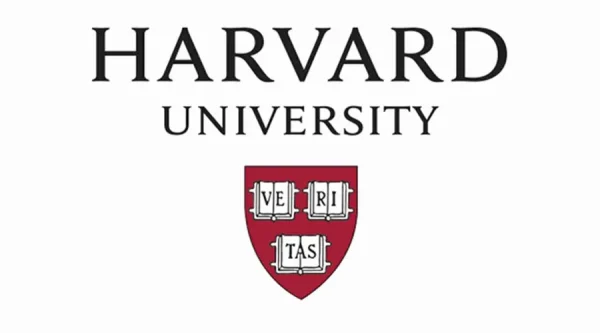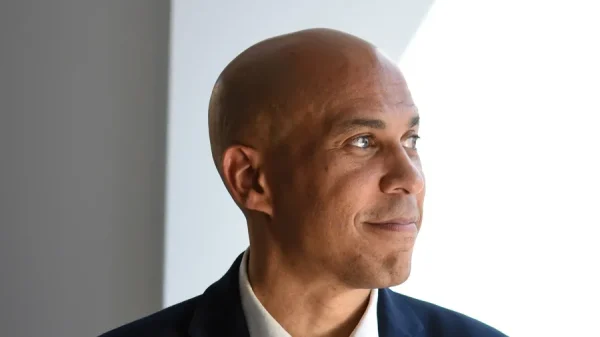Tech companies cut ties with social media network Gab in response to Pittsburgh Shooting
The Pittsburgh Tree of Life synagogue shooting on October 27 drew attention towards shooter Robert Bowers’ social media account on Gab, who posted immediately before the attack, “Screw your optics, I’m going in.” Bowers’ account, which was suspended by Gab and reported to the FBI, was found to contain numerous anti-Semitic posts, and in response to the shooting, several tech companies cut ties with Gab over its complacency towards controversial content such as anti-Semitic and racist posts that users post to their site. This has reignited the debate over what constitutes free speech and the role of tech in policing social media.
Social studies teacher Timothy Short said hate speech is protected under the First Amendment unless it is a direct threat or will incite action against others.
“Often times when you have hate speech or hate groups, violence tends to happen, and then the question becomes, who’s being violent? And that’s a difficult question. Because if you are spewing hate, and someone attacks you for it, did you incite them? The answer to that, for the most part, is no.”
This is not the first time that Gab has clashed with the tech industry. It has been denied essential services from mainstream tech companies for their lack of moderation of inflammatory speech. Apple and Google had banned their app from their stores and Microsoft from their Azure cloud computing service. Coinbase, a cryptocurrency trader, had also cut ties with Gab, leading Gab has developed its own cryptocurrency to gather funds. But even without large companies’ support, Gab has reached 800,000 users and is still growing.
Computer science teacher Mark Estep said that although people generally agree upon free speech and no monopolies among tech companies, we have generally allowed them to deny their services to platforms that sponsor what tech sees as controversial content.
“How did these companies get to the point where they have that power [to police the internet]? We the consumers have given them that power,“ said Estep.
The companies that have refused service to Gab in the wake of the shooting are domain registrar GoDaddy (responsible for the web address), web hoster Joyent, payment services Paypal and Stripe, blogging platform Medium, developer tools provider Pusher and media embedder Embedly. Gab remained offline for a week before returning online with a different web hoster, Epik, on November 3. On November 7, Pennsylvania Attorney General’s Office subpoenaed Epik for all documents related to its connection to Gab, which Epik is cooperating with. Interestingly, web performance and security company Cloudflare, which cut ties with the Daily Stormer, a neo-Nazi news site, did not cut off ties with Gab.
Lauren Perl, a hard left sophomore, and Benjamin Molnar, a moderately right senior, both agree that it was reasonable for tech to deny their services to Gab.
“If a company does not want to be an enabler of hate speech, then they should not have to. It’s not like it violates the anti-Sherman trust laws. You are decreasing access to the platform but it is still available if you want it,” said Perl.
“Most people who read about this see Gab is associated with the shooter, and Gab is platformed by GoDaddy, so in turn, GoDaddy must be supporting shootings. I think that reasoning is flawed, but just from the outside it looks very bad when you’re associated with a website that has a user that killed multiple people. They’re private companies, so of course they have the power and the right to choose to support this organization or not,” said Molnar.
Gab is founded on the principle of free speech. The site’s community guidelines state that “We believe that the only valid form of censorship is an individual’s own choice to opt-out.” As such, posts are not moderated and can be upvoted by users. Users can also mute other’s accounts and keywords like racial slurs. Gab’s terms and conditions do not allow threats of terror, direct threats of violence, pornography, and doxxing (posting someone’s personal and private information online), as well as posts that break US laws such as copyrighted content and images of child abuse.
While Gab contains standard content such as music, arts, and sports, it is infamous for its variety of anti-Semitic and racist content, along with conspiracy theories. Many controversial figures have moved in after Facebook and Twitter banned their accounts: conspiracy theorist Alex Jones, the founder of the neo-Nazi site the Daily Stormer Andrew Anglin, and right-wing provocateur Milo Yiannopoulos, just to name a few.
Molnar said that he doesn’t like how Gab is labeled as an alt-right site. “There are people with different points of view on the website, there are far-left people on the website. I think it’s unfair to label them as completely as the alt-right, and ‘this is where the alt-right congregate’”.
Gab has attracted criticism for providing a home and a voice to these figures and for allowing such content to thrive on its site. It frequently responds to criticism by blaming Facebook, Twitter and other social media sites for the controversial content they don’t remove, which Facebook and Twitter have been struggling to police. In response to the shooting, Gab released several statements defending its response and its mission. Its website said that “We have been smeared by the mainstream media for defending free expression and individual liberty for all people”. It tweeted, “If you use Facebook, Twitter, Instagram, or Reddit: you are using platforms that are used by terrorists, pedophiles, and criminals every single day.” Gab also noted its prompt work with law enforcement to bring justice to the shooter.
Molnar stated that he believes in Gab’s principle of free speech and that speech that doesn’t meet social norms should be debated in the open. Molnar said that Gab was “very noble” for providing a platform for opposing views and repeatedly stressed that censorship is the antithesis to freedom of speech.
“It’s very clear that Gab supports freedom of speech of all kinds. I think that’s kind of essential to our democracy: we have to have platforms that don’t discriminate against one view or another. Just because someone has an opposing view to you doesn’t mean their speech or ideas aren’t valuable,” said Molnar.
Perl disagrees and accuses Gab of enabling hate speech. She believes that there should be limitations on speech that threatens a person’s existence and that it is reasonable to censor speech to protect others.
“Right there, they’re not defending individual liberties, because that hate speech is actively threatening another person’s right to live. When a network like Gab enables that hate speech, that’s a big problem! Gab itself is not inherently a bad network, it’s their lack of censorship that enables hate speech to run rampant.”
When asked about Gab’s stance on moderation, she said “I believe that it is the platform’s responsibility to moderate, because, at this point, they are partially responsible for deaths that happened in the shooting. This was not reported because the platform was not properly censored like how Instagram goes through its comments.”
Gab founder Andrew Torba has stated in an interview with the Wall Street Journal that he plans to monitor the site rather than rely on users to report troubling posts and those that threaten physical harm. As of the shooting, Gab has permanently banned over 200 accounts for repeatedly violating its guidelines against threats of violence. It also removed more than 1,000 posts that threatened violence and hadn’t been reported by users. Gab also manually searched for keywords such as “kill” and “murder” to identify posts that violated the site’s guidelines and is working to automate the process.
Estep said that a filter to check certain words would be easy to create but could be bypassed. He likened creating a filter to trying to prevent cheating.
“Filters will get a high percentage of problems, such as bad words, whatever they may be. While those particular things won’t show up, as soon as someone figures out how it works, they can game it. You can say things without using such words, you can put in asterisks in your text, you can slip past a filter. But creating a filter is like trying to stop cheating. Just because I can’t stop cheating doesn’t mean I shouldn’t try.”
Short said that the courts will continue to struggle with hate speech and social media because of the difficulty of interpreting intent from text alone, as online posts lack human components such as facial and speaking cues.
“What those cases [about free speech] don’t really consider is, if I say I’m going to cause violence and I post it on the internet, at what point does that because a threat towards other people and I get arrested for that? What if I say I’m going to commit this violent act online yet I haven’t done it yet? Did you intend for people to feel scared or threatened? Did you intend to cause violence? It’s that intent piece where ultimately the law will have to determine. How do you get into someone’s mind and determine their intent?”
Perl expressed hope that striking down controversial content, speakers, and sites would help decrease their threat to others.
“They’ll keep popping up under different accounts, but the fact is, if the social media network has a good way of censorship, then they’ll keep getting shut down. Then they won’t be able to accumulate a following, their posts won’t get widely shared.”
However, Estep said that chasing bad actors around the internet would not be so simple largely because of the size of the endeavor.
“If we think as a society we need to stop [bad actors] from speaking, that chase will be forever. If someone’s on the dark web, do we chase them down? It is not necessarily wrong, but we need to understand the effort.” said Estep.
At the end of the day, it is clear that the issue of hate speech and social media will remain unsolved for a while.
“Government and tech need to collaborate to make this work. I guarantee you that government can’t do it alone, and tech can’t do it alone,” said Short.

Skylar Chan is a senior in SMCS and writes in the STEM and technology beat. This is his first year writing for the Pulse. You may have seen him dance in...








